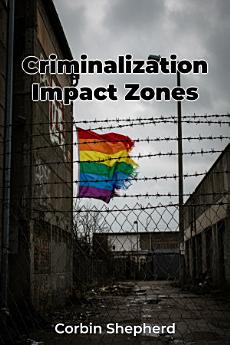Criminalization Impact Zones
Acerca de este libro electrónico
The book progresses by first outlining the historical and social context of anti-LGBTQ laws, then examining their impact on community structures and individual well-being. A key insight is how these laws, often rooted in colonial legacies and religious fundamentalism, undermine the accuracy and reliability of population data.
The book uniquely emphasizes the data collection challenges inherent in studying marginalized populations under repressive regimes, advocating for innovative strategies to ensure ethical and accurate data gathering, such as community-based research. Through a mixed-methods approach combining statistical analysis with ethnographic insights, the book connects to human rights law, public health, and sociology. It provides a nuanced understanding of how social stigma and discrimination shape LGBTQ identities and community structures, offering valuable information for policymakers, researchers, and human rights advocates alike.








